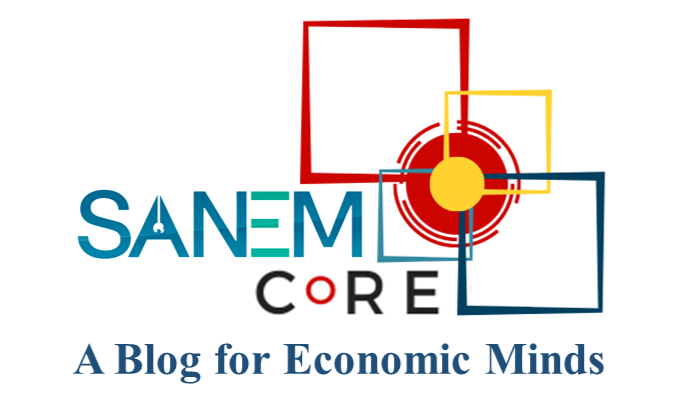The term “learning loss” refers to any specific or general loss of knowledge and skills or reversals in academic progress. Learning loss occurs usually due to extended gaps or discontinuities in a student’s education.
The term has become a buzzword since 2020 due to the prolonged closures of educational institutions during the Covid-19 pandemic.
Unicef has cited learning losses as one of the biggest global threats to the medium and long-term recovery from Covic-19. According to the World Bank’s estimation, the global economic effects of the learning loss amount to approximately $17 trillion in lifetime earnings in present value.
According to a World Bank policy research working paper consisting of a systematic review of thirty-six robust studies from a larger sample, global learning loss on average amounted to roughly half a year’s worth of learning.
Without addressing the issue of learning loss of a particular grade, students are unable to absorb the study material from the grade level that they are supposed to be in, resulting in a lack of progress at the educational level.
Moreover, the direct and indirect implications brought about by learning loss differ for nations based on their income group and poverty level.
For instance, according to the Asian Development Bank (ADB), due to learning loss, developing countries in Asia may experience total losses in expected lifetime earnings summing up to $3.2 trillion, which is more than one-eighth of those countries’ pre-pandemic GDP.
Furthermore, the far-reaching generational impact that learning loss brings in terms of equity due to the variations in technological access across regions, genders, income classes, geographical units etc is yet to be completely comprehended, both nationally and globally.
It is worthwhile to mention that the learning standard of Bangladeshi children was poor even before the pandemic. Secondly, the period of school closure in Bangladesh was the second highest in the world, lasting for 543 days or 18 months.
The education of approximately 37 million children had been disrupted during this period. According to a World Bank report, 76% of children could not attain the minimum reading proficiency at the end of primary school due to school closures. Hence, addressing the learning loss crisis in Bangladesh is of paramount importance.
Several studies have found that most students could not benefit from alternative learning approaches during the school closure, especially remote learning efforts.
Educational institutes had little to no experience with remote learning when the pandemic began, they lacked the training, required software, computers and universal internet access, among other issues.
As anticipated, schools in regions with high levels of poverty, and hard-to-reach areas, such as hill tracts, char, haors and coastal regions struggled relatively more.
However, there exists a lack of evidence regarding the depth and complexity of learning loss in the country. On that note, adequate evidence of learning loss requires a corresponding monitoring and evaluation system in the first place, which is not available in Bangladesh.
According to a study conducted on eighth graders by the Bangladesh Education Development Unit (BEDU) under Dhaka Education Board, 80% of students suffered learning losses in Bangla, about 76% in English and 69% in Mathematics. The study also found evidence of significant regional disparity between the urban and rural areas. The study suggested extra classes throughout the ninth and tenth grades to cover the learning loss of the eighth graders, including an additional number of extra classes for hard-to-reach regions.
Moreover, due to the severity of the situation, it has been suggested that in addition to extra classes, the hard-to-reach regions should depend more on online classes, assignments and other alternative measures to cope with the learning loss.
Furthermore, it is important to point out that no similar study has been conducted to address the learning loss of other grades.
Consequently as of October 2022, although the nation has been going through a gradual process of recovery in the post-pandemic era in every sector, the education sector has not been able to acknowledge and mitigate the learning loss issue of any grade except the eighth grade.
The international community and development partners have voiced their concerns and suggested recommendations to overcome the learning loss and continue the regular education process.
For instance, according to the report by the Global Education Evidence Advisory Panel (GEEAP), the four urgent recommendations to help prevent further loss and recover children’s education are: prioritising keeping schools and preschools fully open; prioritising teachers for the Covid-19 vaccination, using masks appropriately, and improving ventilation; adjusting instructions to support the learning needs of children, focusing on the important foundational skills and governments mandatorily ensuring teachers have adequate support to help children learn.
In Bangladesh, it is crucial to conduct studies immediately to grasp the severity of learning loss for every grade. The grade-wise and severity-wise tailored recommendations have to be actualised without any delay. The recommendations can be classified as short-term, medium-term and long-term and should be construed with adequate consultation with all relevant stakeholders.
The learning loss issue faced by the pandemic may allow us to prepare a system which can be placed in other scenarios as well, such as in regions affected by other natural calamities which cause learning loss to the students living in those regions.
The pandemic first appeared as a health crisis and unfolded into a full-blown economic crisis, but it also turned into an education crisis. On the other hand, it has presented a chance to revitalise the education system, making them more effective and resilient than ever before.
According to education practitioners, this is a chance to adjust the curriculum and ensure that students master the foundational skills. In conclusion, it can be stated that how we deal with the learning loss issue will decide the performance and substance of the education sector in the future.
The article was first published in the The Business Standard, on 28 November 2022


RECENT COMMENTS